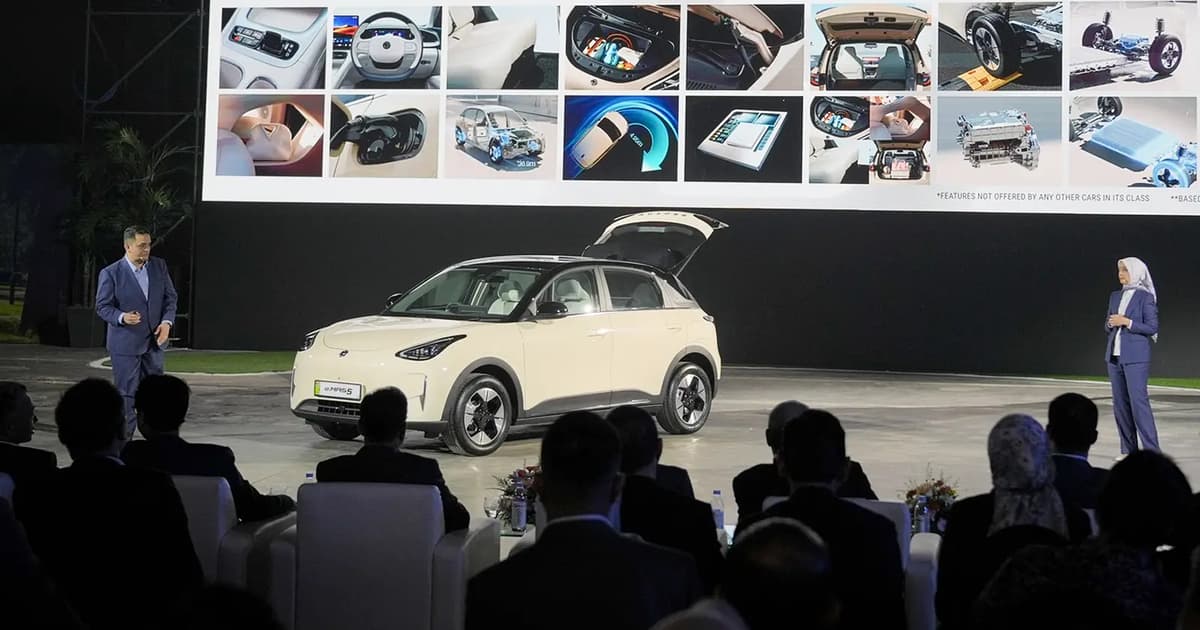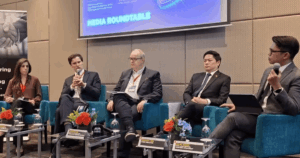
Will Malaysia’s electric vehicle (EV) sales see a sharp decline next year with the tax holiday for completely built-up (CBU) EVs coming to an end?
No, I don’t think so. On the contrary, I believe EVs produced by the country’s two leading car makers may usher in a new era of affordable zero-emission motoring.
Electric cars have less components and, theoretically, are cheaper to make than their petrol or diesel equivalents.
That theory became reality for Malaysian car buyers when Proton launched its e.Mas 5 EV at below RM80,000 recently. Perodua, the second national car maker, plans to launch its own EV at around the same price band by year-end.
Although EVs accounted for less than five percent of total car sales for the first half of this year, its 91% jump to 16,300 units compared to the same period last year offered compelling proof of growth.
The government’s recent confirmation at Budget 2026 that the two-year tax holiday for CBU EVs will end on Dec 31 this year has sparked a flurry of bookings at showrooms nationwide.
That’s because prices of fully imported EVs could surge by 15% to 30% starting January 2026. It means a premium Chinese all-wheel drive EV complete with air suspension—currently priced at RM180,000—could cost RM240,000 or more next year.
But the more interesting development is happening in the sub-RM100,000 market.
If Proton and Perodua can deliver quality, range and reliability at that price point, they could fundamentally change Malaysia’s EV story.
Suddenly, the market may no longer be dominated by imports, but by locally assembled EVs tailored to local needs — and within reach of the masses.
This raises a crucial question: is Malaysia about to break free from its decades-old pattern of inefficient small-scale local assembly, or will we simply witness the same protectionist cycle in a new, electrified form?
In the 1980s and 1990s, Japanese car brands set up local assembly plants here to bypass import taxes. The protectionist policy supported jobs and vendors but kept prices artificially high.
Now, EV-centric automakers — BYD, Chery and Proton-Geely — are following suit, with plans to assemble cars locally to remain competitive after the tax holiday ends.
While this localisation drive risks trapping the country in the same cycle of protection and limited innovation, there is a chance that electrification may yet help Malaysia get out of the rut of import substitution and inefficient small-scale local assembly.
Proton’s e.Mas 5 and Perodua’s upcoming EV could point the way to the future.
If Malaysia can use this momentum to move beyond mere assembly — and up the value chain into EV components, battery recycling, software and charging infrastructure — it could finally evolve from being a high-cost assembler to a true technology player.
The real question isn’t just whether Malaysians will continue to pay high prices for cars, but whether the country can redefine its automotive future.
The EV era presents Malaysia with a rare opportunity to rewrite the playbook and make clean mobility affordable without relying on tariffs to sustain local industry.
If Proton and Perodua can deliver on their promise of affordable EVs, they will not only democratise electric mobility but also finally help Malaysia shift gears toward a more competitive, innovative and low-carbon automotive economy.
Yamin Vong is on Facebook yamin.com.my.
The views expressed are those of the writer and do not necessarily reflect those of FMT.






